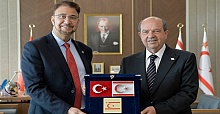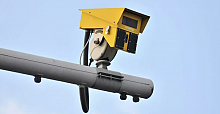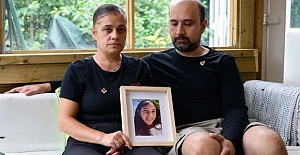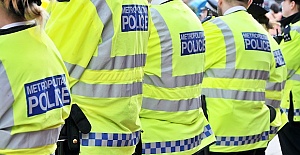Washington wants Western and Arab allies to commit to directing all aid to Syrian rebels through the Western-backed Supreme Military Council, a senior U.S. official said before talks in Qatar on Saturday. U.S. President Barack Obama announced last week that Washington would step up military aid to rebels following a series of counter-attacks by Syrian President Bashar al-Assad's forces, including the recapture of a strategic border town in an offensive led by Lebanese Hezbollah fighters. Rebels say they urgently need advanced arms, including anti-tank and anti-aircraft weapons, to stem Assad's advance. Western countries hope by channelling assistance through the council - the rebel military leadership headed by General Salim Idriss, a former commander in Assad's army - they can control the influence of different groups.
The meeting in Qatar - a staunch supporter of rebels battling Assad - brings together ministers of 11 countries that make up a pro-rebel alliance - France, Germany, Egypt, Italy, Jordan, Qatar, Saudi Arabia, Turkey, United Arab Emirates, Britain and the United States.
"The goal of the meeting is to be very concrete about the importance of all assistance, every kind of assistance that is coming from 11 countries," the senior U.S. official told reporters travelling with Kerry.
"It is important that it be fully coordinated and go through only the Syrian opposition Coalition, specifically the Supreme Military Council," the official said.
U.S. LAWMAKERS WARY
Before his departure from Washington, Kerry spent Thursday briefing Congress on the administration's Syria plans, with some lawmakers pressing for the United States to do more and others decrying any deeper involvement in the civil war.
Having withdrawn U.S. troop groups from Iraq and working to wind down American forces in Afghanistan, some lawmakers are wary of getting involved in another costly conflict. Some worry that the weapons could end up in the hands of groups who could one day use them against Western interests.
Until now the United States has been providing non-lethal aid - food and medicine - to the rebels.
The United Nations launched a $5 billion humanitarian aid effort for Syria two weeks ago, its biggest ever. The United States has promised more than $300 million to address the crisis and help neighbouring countries cope with 1.6 million refugees who have fled the civil war.
During his trip, which includes seven countries, most of them in the Middle East, Kerry will also raise Washington's concerns in talks in Saudi Arabia on June 25 about the funding of certain groups in Syria and the presence of foreign fighters from Hezbollah and Iran in helping Assad's forces.
Saudi Arabia recently expanded its weapons supply to the rebels to include anti-aircraft missiles. Saudi Arabia's King Abdullah cut short his holiday to fly home a week ago and warned of "repercussions of events in the region", in an apparent reference to the Syrian crisis.
While in Qatar, Kerry will also meet authorities to discuss the planned talks between the United States and Taliban in Doha, though he will not meet Taliban representatives.
The talks, which will be led by U.S. special envoy to Afghanistan and Pakistan James Dobbins, were to have taken place last Thursday but were temporarily delayed by tensions over the naming of a new Taliban office in Doha which prompted outrage from Kabul.
John Kerry seeks to coordinate aid to Syrian rebels
Washington wants Western and Arab allies to commit to directing all aid to Syrian rebels through the Western-backed Supreme Military Council
22 Haziran 2013 Cumartesi 07:11
reads.
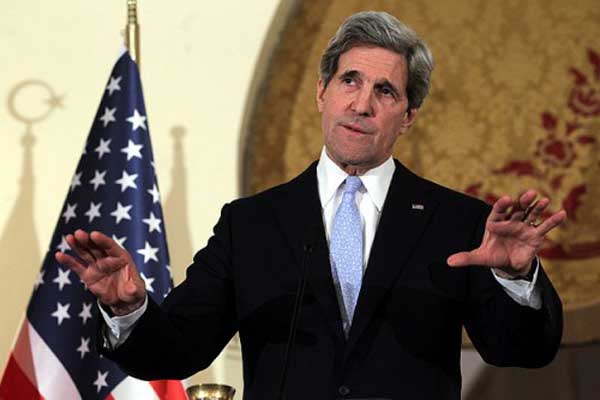


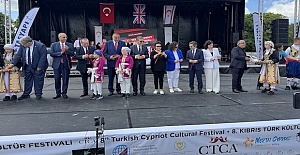 CTCA UK Condemns the Political Forcing Out of Afzal Khan MP for Engaging with Turkish Cypriots
CTCA UK Condemns the Political Forcing Out of Afzal Khan MP for Engaging with Turkish Cypriots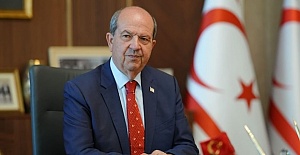 Tatar: “Reaction to MP’s TRNC visit is yet another stark example of the Greek Cypriot leadership’s primitive and domineering mentality”
Tatar: “Reaction to MP’s TRNC visit is yet another stark example of the Greek Cypriot leadership’s primitive and domineering mentality”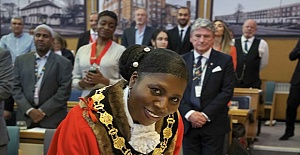 Margaret Greer has been sworn in as the new Mayor of Enfield
Margaret Greer has been sworn in as the new Mayor of Enfield Prime Minister Keir Starmer's 2025 Easter message
Prime Minister Keir Starmer's 2025 Easter message Team Enfield ranks fifteenth the in London Youth Games
Team Enfield ranks fifteenth the in London Youth Games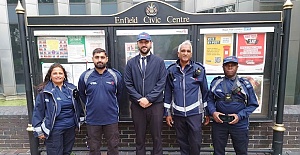 Parking enforcement boosted with more officers on patrol in Enfield
Parking enforcement boosted with more officers on patrol in Enfield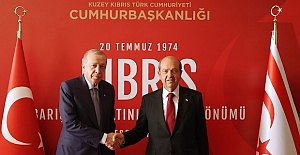 Ersin Tatar meets with President Erdoğan
Ersin Tatar meets with President Erdoğan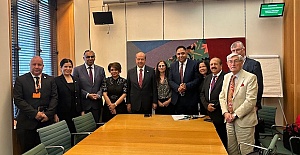 President Ersin Tatar Holds Ministerial-Level Meeting with UK Minister for Europe
President Ersin Tatar Holds Ministerial-Level Meeting with UK Minister for Europe UEFA Europa League and UEFA Conference League draws to be combined into one single show
UEFA Europa League and UEFA Conference League draws to be combined into one single show EuroLeague schedule for 2025-26 season announced
EuroLeague schedule for 2025-26 season announced Zeynep Sonmez becomes first Turkish tennis player to reach third round at Wimbledon
Zeynep Sonmez becomes first Turkish tennis player to reach third round at Wimbledon European champions Arsenal Women will play all of their league matches at the Emirates Stadium
European champions Arsenal Women will play all of their league matches at the Emirates Stadium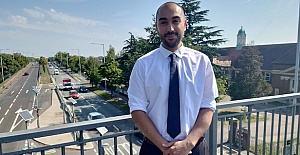 Enfield Labour welcomes the completion of A10 average speed cameras extension.
Enfield Labour welcomes the completion of A10 average speed cameras extension. TfL opens 2025 grants for community groups to encourage more walking, cycling and active travel in the capital
TfL opens 2025 grants for community groups to encourage more walking, cycling and active travel in the capital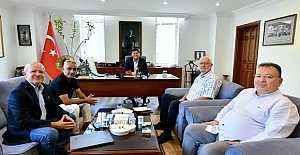 Fethiye Launches International Digital Tourism Campaign with UK-Based Publisher
Fethiye Launches International Digital Tourism Campaign with UK-Based Publisher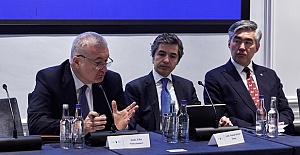 Highlights from the 3rd Trans-Caspian Connectivity Conference in London
Highlights from the 3rd Trans-Caspian Connectivity Conference in London

